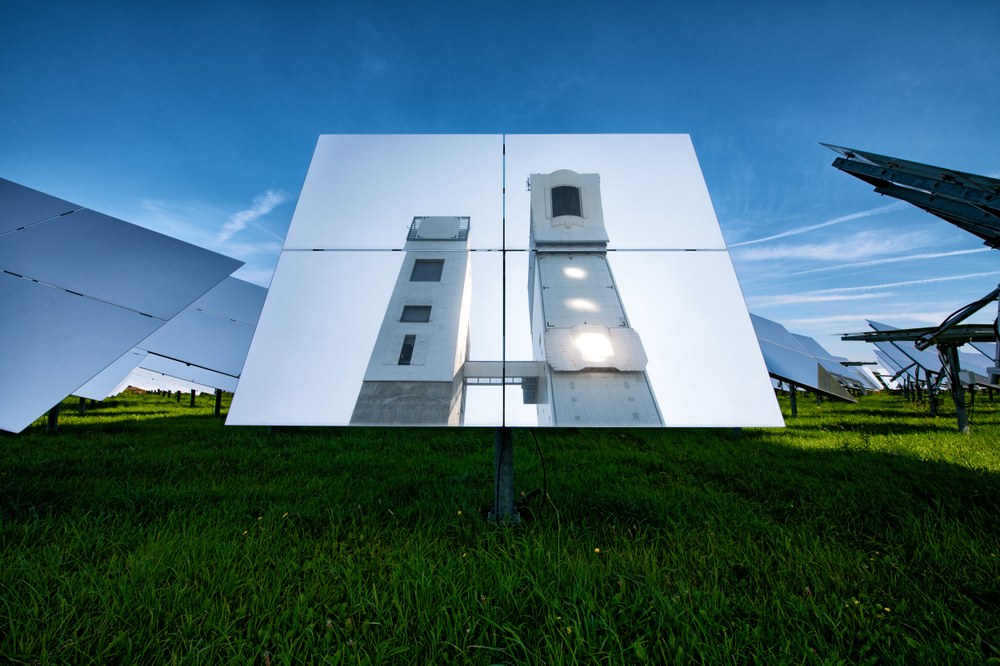Institute of Solar Research
The Institute of Solar Research develops concentrating solar systems for the generation of heat, power and fuel.

Duration: 1.1.2019 – 31.12.2021
Both in science and in practice there is agreement that - regardless of the 1 million e-vehicle target - the full integration of electrically powered cars and commercial vehicles into German traffic will take a longer period of time. This results in the need to provide technologies in the short term that bring about a rapid reduction in fossil CO2 emissions from transport.
The research project “Solar Fuels” has set itself the goal of identifying candidates for fuels that can be technically and competitively produced from water and CO2 using solar thermal technology with substantial CO2 savings and that can function as drop-in-fuels for refueling, using the existing and necessary infrastructure effectively. In this project, the DLR Institute of Solar Research is working together with the DLR Institute of Combustion Technology and the DLR Institute of Engineering Thermodynamics, as well as with Robert Bosch GmbH and Kraftanlagen München GmbH as associated partners.
With regard to the envisaged "solar fuels", the general aim of the project is to map and evaluate the entire process chain of solar-produced fuels from production to technical use. The aim is to make a selection from the large number of possible drop-in-fuels with regard to efficiency, to determine the product selectivity with regard to the production path and to analyze the combustion behavior with regard to suitability as a drop-in-fuel.
The use of the “Solar Fuels” project focuses on drop-in-fuels with the infrastructure necessary for refueling and combustion. This enables a much faster implementation on the market than is possible with concepts that i.e. require the exchange of vehicle fleets, the development of parallel or the expansion of existing infrastructure. For this purpose, a feasibility and potential study is being carried out in which this problem is examined both from the side of solar fuel generation from water and CO2 and from the side of the consumer, the engine combustion process.
The entire life cycle of the fuels produced and used in this way is assessed by quantifying ecological and economic parameters.
The expected result of the study is a reliable statement about the most promising fuel candidates and a description of the way in which it is manufactured and used, so that the technology necessary for the implementation of this way can be built and demonstrated in follow-up activities.
Project | Solar Fuels |
|---|---|
Duration | 1.1.2019 – 31.12.2021 |
Website | http://www.energieforschung.de/forschung-und-innovation/energiewende-im-verkehr/projekte |
Project participants | |
Funding | The project is funded by the German government's energy research programme |
